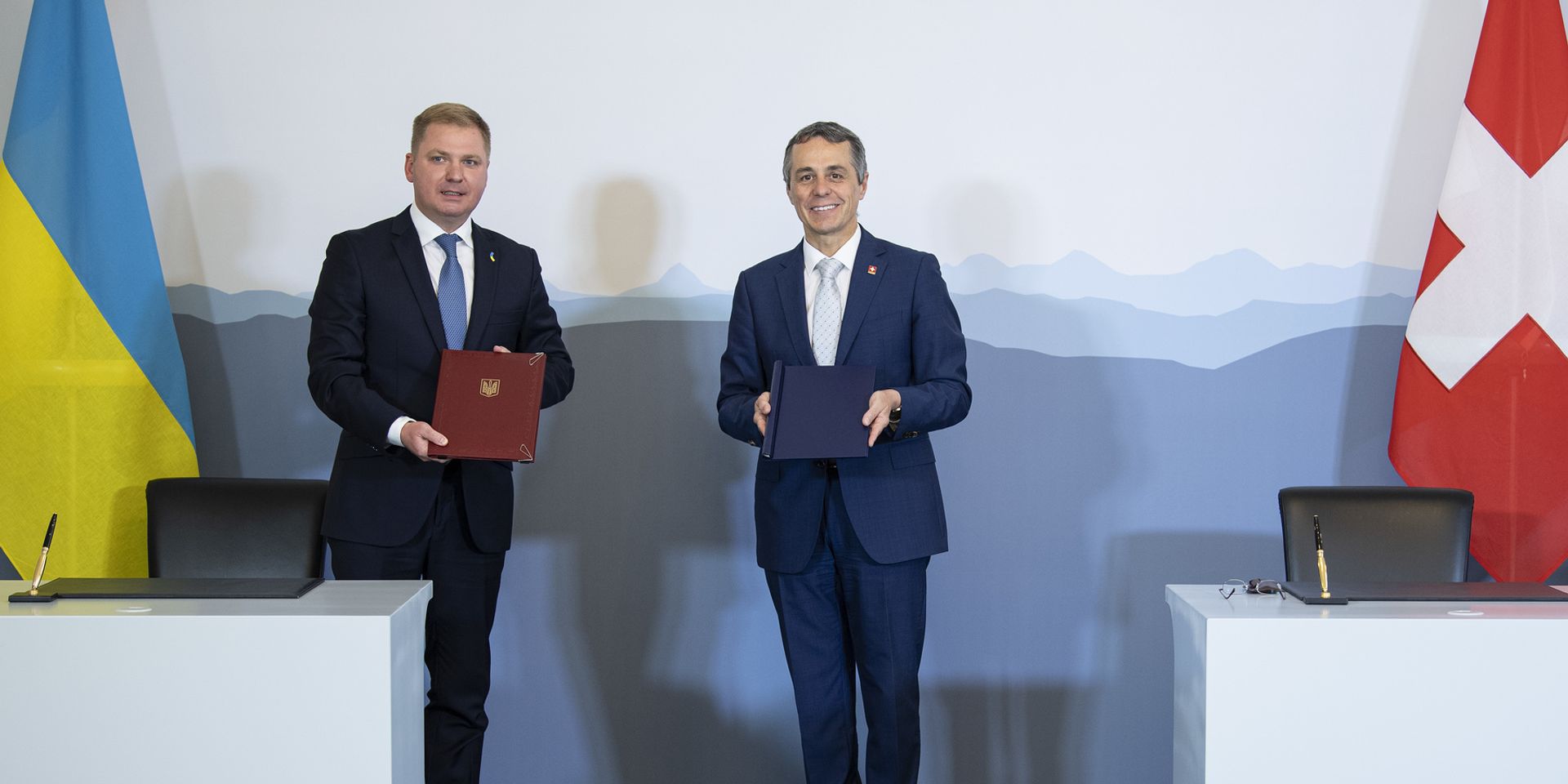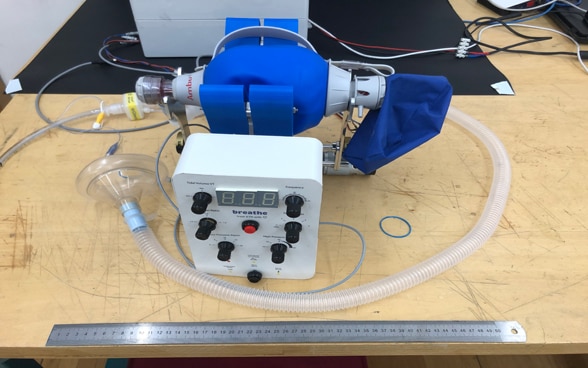Affordable ventilators in the fight against COVID-19
The FDFA supports the ETH Zurich in the production of affordable ventilators in the Ukraine. On June 30, 2020, Federal Councillor Ignazio Cassis and the Ukrainian Ambassador to Switzerland, Artem Rybchenko, signed an agreement to provide start-up funding for an ETH project that will make such ventilators affordable for newly industrialized (NIC) and developing countries.

The Ukrainian Ambassador to Switzerland, Artem Rybchenko, and Federal Councillor Ignazio Cassis at the signing of the Memorandum of Understanding on 30 June 2020 in Bern. © Keystone
Many countries have a severe shortage of respiratory equipment. Access to these vital ventilators is a major problem for people who have breathing difficulties, such as those suffering from the coronavirus. According to the organization Médecins sans Frontières, the Central African Republic has three ventilators for five million people, and the UN speaks of a blatant lack of such equipment throughout Africa.

The Swiss Federal Institute of Technology Zurich ETH has therefore initiated a project to manufacture ventilators simply and cost-effectively. Among other things, standardized, locally available components are used for this purpose. "Respirators are usually expensive high-end devices that cost tens of thousands of francs. ETH Zurich has developed a device that is constructed simply and consists of locally available components. The device does not replace high-end devices. However, it allows us to direct their use to critical patients," explains Federal Councillor Cassis.
EDA supports project with start-up financing
The provision of respiratory equipment is a key humanitarian project for the Federal Department of Foreign Affairs FDFA. The FDFA is therefore supporting the production of cost-effective ventilators with start-up funding of CHF 1.5 million. The amount is provided by the Swiss Agency for Development and Cooperation (SDC).
With the signing of the Memorandum of Understanding on 30 June 2020, Federal Councillor Iganzio Cassis and the Ukrainian Ambassador, Artem Rybchenko, officially defined the criteria for the cooperation. "The project is an example of science-diplomacy. It also shows the potential that collaboration with the science sector has for sustainable development," emphasises Federal Councillor Cassis.
Cooperation with business and science as part of IC
A first large-scale series of the device is to be produced in the Ukraine. It is envisaged that the devices will initially be delivered to health and first aid stations in Ukraine, where demand is high. In the future, exports to developing countries are also considered.
The project illustrates the FDFA's effective cooperation with other actors in sustainable development. Within the framework of "Tech4Good", the FDFA is working with industry and science worldwide to promote innovative technological approaches in order to increase the effectiveness of international cooperation. Increased cooperation with the private sector and the scientific community is also one of the priorities of Switzerland's International Cooperation Strategy 2021-2024.
